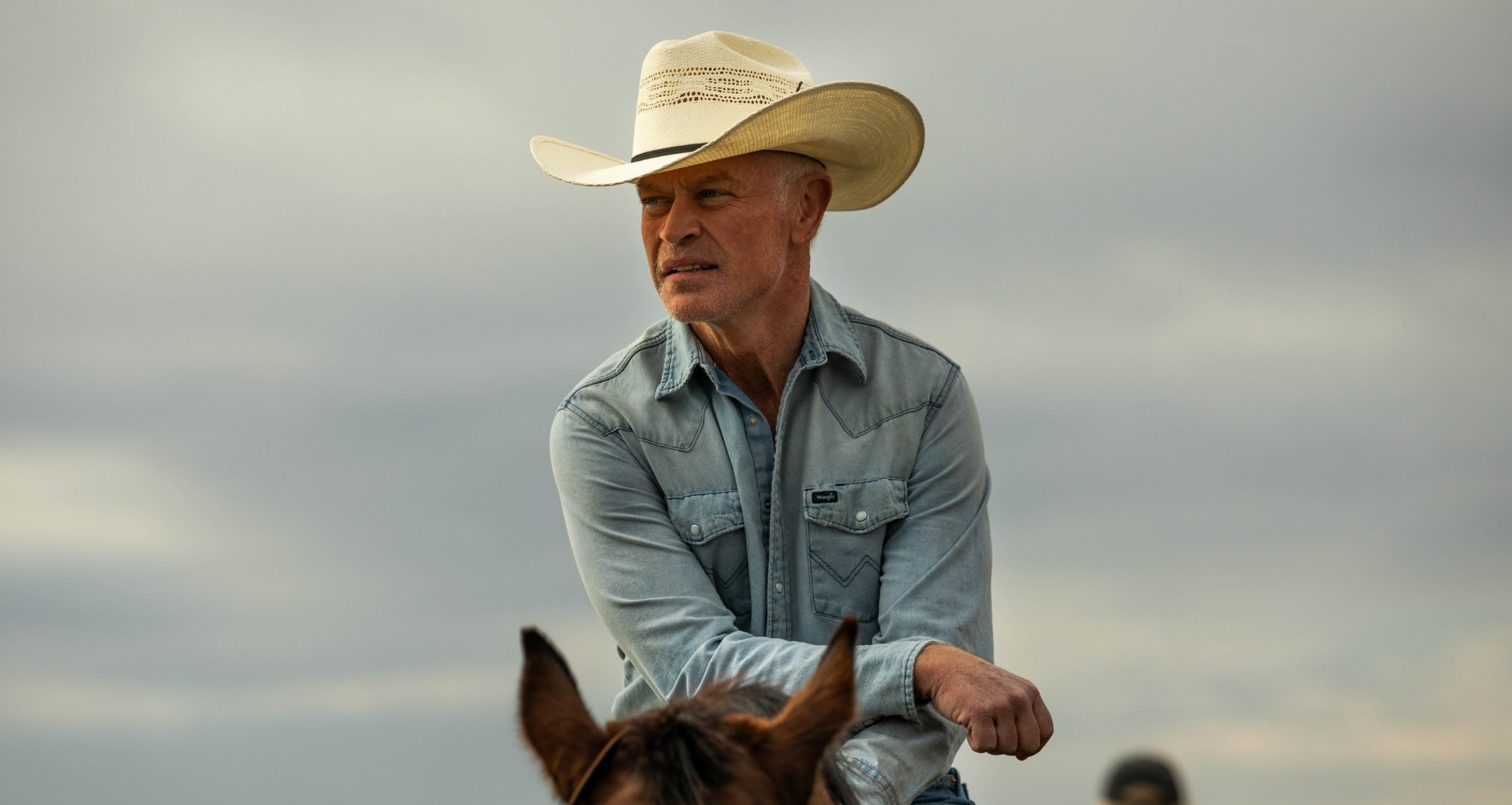The rules of Professional Bull Riding, I have recently learned, involve staying on a bull for eight seconds, while holding on with one hand.
Creating a feature film about an event that happens so quickly might seem a challenge but there’s been more than a dozen such movies so far. The latest stars Neal McDonough in a film nearly as simple as the event. In “The Last Rodeo” he plays a past three-time champion returning to the ring at 50 in order to help pay for a grandson’s brain surgery.
Like every “Rocky” movie it goes through its stages — people calling him crazy, the hiring of a tough former trainer (Mykelti Williamson), the training montage (in this case to Lynyrd Skynyrd’s “A Simple Man”), the build up to the tournament, the triumphs, the setbacks and, let’s face it, the ultimate success.
Every minute is predictable, but that in itself may be the attraction to those who will be comforted by its familiar rhythms.
Still, to make an eight-second ride the centerpiece of a movie that stretches to nearly two hours involves a lot of stalling.
“The Last Rodeo” extends McDonough’s association with Angel Studios, the Christian-based outfit that began as a company the censored Hollywood movies, wholly unauthorized, and made them available on DVD, before getting into producing hits like “Sound of Freedom,” the 2023 drama about trafficking that has been criticized for accuracy and aligning with QAnon beliefs, as well the TV series about Jesus, “The Chosen.”
McDonough played the devil in their 2023 “The Shift” and stars in their doomsday prepper movie “Homestead” meant to promote a series of the same name on the studio’s own streaming service.
Here, he’s also a co-writer and producer with his wife Rúve McDonough, who also plays his late wife in film flashbacks, signaling three-fingered salutes to one another (Signaling a win with a capital W? Indicating the Holy Trinity? It’s never made clear).
Religion plays a part in the film as it often does in Angel Studios. His friend and coach Charlie, played by Williamson, who gained fame as Bubba in “Forrest Gump,” keeps evangelizing subtly. He plays a game where McDonough’s character Joe is invited to pick any page of the Bible at random, to which he throws his finger, as if a dart, knowing that whatever is randomly chosen, it will be an inspiring verse.
An unintended underlying theme is a savage critique of a health care system that forces long-retired bull riders out of retirement in order pay the six-figure bills of his grandkid.
McDonough, at 59, plays a 50-year-old rider, which doesn’t sound so old except that bull-riding is a pretty unforgiving sport. He’s close to his grandson and his daughter, who still holds a grudge for having to care for him after his last disastrous ride, when he went out drunk, mourning the loss of his wife for the same kind of brain tumor.
But it’s odd to suggest that the film is about reconciliation between daughters and fathers, as McDonough says in a post-show message during the credits, mostly given over to raising more money allow others to see the film — a common Angel Studios ploy.
“The Last Rodeo” is a handsomely done film, with big vistas of Texas and Oklahoma, where it was shot. Everybody looks good in the hats.
Director Jon Avnet, whose past films include “Fried Green Tomatoes” and “Up Close & Personal,” does a workmanship job on a story that he also co-wrote (and could have easily been cut by 30 minutes or more). He also turns in one of the film’s most convincing performances briefly as a doctor.
It’s fun to see Christopher McDonald (“Thelma & Louise,” “Happy Gilmore,” TV’s “Hacks”) as a PBR official who helps Joe out. But Sarah Jones (“For All Mankind,” “Alcatraz”) is a little stilted as the daughter. Her reaction when told her son’s diagnosis is to go stand in the restroom.
The culminating bull riding scenes are exciting, benefitting from multiple angles, slo-mo and stunt doubles that are often the top riders, some of whom also appear as themselves in the competition scenes. But it takes a very long time to get there.
“The Last Rodeo” is in theaters.
